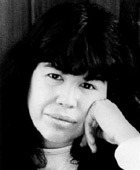Walks Quotes
Quotes tagged as "walks"
Showing 1-30 of 51

“None of your knowledge, your reading, your connections will be of any use here: two legs suffice, and big eyes to see with. Walk alone, across mountains or through forests. You are nobody to the hills or the thick boughs heavy with greenery. You are no longer a role, or a status, not even an individual, but a body, a body that feels sharp stones on the paths, the caress of long grass and the freshness of the wind. When you walk, the world has neither present nor future: nothing but the cycle of mornings and evenings. Always the same thing to do all day: walk. But the walker who marvels while walking (the blue of the rocks in a July evening light, the silvery green of olive leaves at noon, the violet morning hills) has no past, no plans, no experience. He has within him the eternal child. While walking I am but a simple gaze.”
― A Philosophy of Walking
― A Philosophy of Walking

“Regard yourself as a small corporation of one. Take yourself off on team-building exercises (long walks). Hold a Christmas party every year at which you stand in the corner of your writing room, shouting very loudly to yourself while drinking a bottle of white wine. Then masturbate under the desk. The following day you will feel a deep and cohering sense of embarrassment.”
―
―

“The Native Americans, whose wisdom Thoreau admired, regarded the Earth itself as a sacred source of energy. To stretch out on it brought repose, to sit on the ground ensured greater wisdom in councils, to walk in contact with its gravity gave strength and endurance. The Earth was an inexhaustible well of strength: because it was the original Mother, the feeder, but also because it enclosed in its bosom all the dead ancestors. It was the element in which transmission took place. Thus, instead of stretching their hands skyward to implore the mercy of celestial divinities, American Indians preferred to walk barefoot on the Earth: The Lakota was a true Naturist – a lover of Nature. He loved the earth and all things of the earth, the attachment growing with age. The old people came literally to love the soil and they sat or reclined on the ground with a feeling of being close to a mothering power. It was good for the skin to touch the earth and the old people liked to remove their moccasins and walk with bare feet on the sacred earth. Their tipis were built upon the earth and their altars were made of earth. The birds that flew in the air came to rest on the earth and it was the final abiding place of all things that lived and grew. The soil was soothing, strengthening, cleansing and healing. That is why the old Indian still sits upon the earth instead of propping himself up and away from its life-giving forces. For him, to sit or lie upon the ground is to be able to think more deeply and to feel more keenly; he can see more clearly into the mysteries of life and come closer in kinship to other lives about him. Walking, by virtue of having the earth’s support, feeling its gravity, resting on it with every step, is very like a continuous breathing in of energy. But the earth’s force is not transmitted only in the manner of a radiation climbing through the legs. It is also through the coincidence of circulations: walking is movement, the heart beats more strongly, with a more ample beat, the blood circulates faster and more powerfully than when the body is at rest. And the earth’s rhythms draw that along, they echo and respond to each other. A last source of energy, after the heart and the Earth, is landscapes. They summon the walker and make him at home: the hills, the colours, the trees all confirm it. The charm of a twisting path among hills, the beauty of vine fields in autumn, like purple and gold scarves, the silvery glitter of olive leaves against a defining summer sky, the immensity of perfectly sliced glaciers … all these things support, transport and nourish us.”
― A Philosophy of Walking
― A Philosophy of Walking

“Walking causes a repetitive, spontaneous poetry to rise naturally to the lips, words as simple as the sound of footsteps on the road. There also seems to be an echo of walking in the practice of two choruses singing a psalm in alternate verses, each on a single note, a practice that makes it possible to chant and listen by turns. Its main effect is one of repetition and alternation that St Ambrose compared to the sound of the sea: when a gentle surf is breaking quietly on the shore the regularity of the sound doesn’t break the silence, but structures it and renders it audible. Psalmody in the same way, in the to-and-fro of alternating responses, produces (Ambrose said) a happy tranquillity in the soul. The echoing chants, the ebb and flow of waves recall the alternating movement of walking legs: not to shatter but to make the world’s presence palpable and keep time with it. And just as Claudel said that sound renders silence accessible and useful, it ought to be said that walking renders presence accessible and useful.”
― A Philosophy of Walking
― A Philosophy of Walking

“Who are these people sharing the street with me? What is going on in their worlds, inside their heads? Are they in love? If so, is it the kind that Mum and Dad have? Based on having things in common, like raspberry picking and a love of dogs, and Shakespeare, and long country walks? Or is it the knock-you-out, eat-you-up, set-you-on-fire kind of love that I have longed for-and avoided-all my life?”
― The English American
― The English American

“Slowness means cleaving perfectly to time, so closely that the seconds fall one by one, drop by drop like the steady dripping of a tap on stone. This stretching of time deepens space. It is one of the secrets of walking: a slow approach to landscapes that gradually renders them familiar. Like the regular encounters that deepen friendship.”
― A Philosophy of Walking
― A Philosophy of Walking

“Blinding, mineral, shattering silence. You hear nothing but the quiet crunch of stones underfoot. An implacable, definitive silence, like a transparent death. Sky of a perfectly detached blue. You advance with eyes down, reassuring yourself sometimes with a silent mumbling. Cloudless sky, limestone slabs filled with presence: silence nothing can sidestep. Silence fulfilled, vibrant immobility, tensed like a bow. There’s the silence of early morning. For long routes in autumn you have to start very early. Outside everything is violet, the dim light slanting through red and gold leaves. It is an expectant silence. You walk softly among huge dark trees, still swathed in traces of blue night. You are almost afraid of awakening. Everything whispering quietly. There’s the silence of walks through the snow, muffled footsteps under a white sky. All around you nothing moves. Things and even time itself are iced up, frozen solid in silent immobility. Everything is stopped, unified, thickly padded. A watching silence, white, fluffy, suspended as if in parentheses.”
― A Philosophy of Walking
― A Philosophy of Walking

“But walking causes absorption. Walking interminably, taking in through your pores the height of the mountains when you are confronting them at length, breathing in the shape of the hills for hours at a time during a slow descent. The body becomes steeped in the earth it treads. And thus, gradually, it stops being in the landscape: it becomes the landscape. That doesn’t have to mean dissolution, as if the walker were fading away to become a mere inflection, a footnote. It’s more a flashing moment: sudden flame, time catching fire. And here, the feeling of eternity is all at once that vibration between presences. Eternity, here, in a spark.”
― A Philosophy of Walking
― A Philosophy of Walking

“Joy is not the satisfied contemplation of an accomplished result, the emotion of victory, the satisfaction of having succeeded. It is the sign of an energy that is deftly deployed, it is a free affirmation: everything comes easy. Joy is an activity: executing with ease something difficult that has taken time to master, asserting the faculties of the mind and the body. Joys of thought when it finds and discovers, joys of the body when it achieves without effort. That is why joy, unlike pleasure, increases with repetition, and is enriched. When you are walking, joy is a basso continuo. Locally, of course, you may run into effort and difficulty. You will also find immediate moments of contentment: a proud gaze backwards to contemplate the long steep plunge of the slope behind you. Those satisfactions, though, too often present an opportunity to reintroduce quantities, scores, figures (which track? how long? what altitude?). And walking becomes a competition. That is why expeditions in high mountain country (conquering peaks, each one a challenge) are always slightly impure: because they give rise to narcissistic gratification. What dominates in walking, away from ostentation and showing off, is the simple joy of feeling your body in the most primitively natural activity.”
― A Philosophy of Walking
― A Philosophy of Walking

“Most everything influences my work. Working in a used bookstore. Going for walks in the woods and peering at mushrooms. Writing reviews. Coming from frumpy, grumpy, faded-at-the-knees Winnipeg.”
―
―

“In the history of walking, many experts considering him (Wordsworth) the authentic originator of the long expedition. He was the first – at a time (the late eighteenth century) when walking was the lot of the poor, vagabonds and highwaymen, not to mention travelling showmen and pedlars – to conceive of the walk as a poetic act, a communion with Nature, fulfilment of the body, contemplation of the landscape. Christopher Morley wrote of him that he was ‘one of the first to use his legs in the service of philosophy’.”
― A Philosophy of Walking
― A Philosophy of Walking

“I collect the walks of my life. Some people have asked me if I have walked so very far to merit such an activity, but I say to them, it's not about how far you have walked, but how thoroughly.”
― Little
― Little

“There are walks of pain—the pacing-around-your-house-lonesome-heartbreak kind. There are walks of joy—leaping and bold, ecstatic with good news. There are walks of new beginnings—the first steps of a child or a young woman learning to become like a child again.
And there are hornets’ nests of walks that sting you with living terror.”
― Peter
And there are hornets’ nests of walks that sting you with living terror.”
― Peter
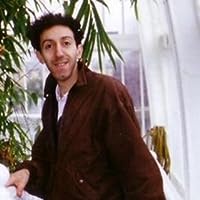
“When walking and thinking come together, the solution for your problem will appear on the horizon as well!”
―
―

“Walker-thinkers have found various ways to accommodate the gifts that their walking brings. Caught paperless on his walks in the Czech enclaves of Iowa, maestro Dvořák scribbles the string quartets that visited his brain on his starched white shirt cuffs (so the legend goes). More proactively, Thomas Hobbes fashioned a walking stick for himself with an inkwell attached, and modern poet Mary Oliver leaves pencils in the trees along her usual pathways, in case a poem descends during her rambles.”
― Crow Planet: Essential Wisdom from the Urban Wilderness
― Crow Planet: Essential Wisdom from the Urban Wilderness

“Reading a book is like taking a walk through an unknown country.”
― The Way Through the Woods: Overcoming Grief Through Nature
― The Way Through the Woods: Overcoming Grief Through Nature
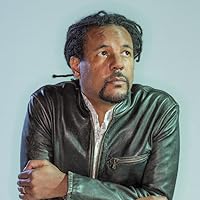
“She has one pair of worn sneakers, left over from when she first moved to the city and spent long hours on trudging marches between the buildings. Each time she came to the city's edges and saw the churning brown rivers beyond, Lila Mae would hit a right angle and turn back into the buildings, deeper in. She'd never experienced anonymity like that: it's as if the place stimulates enzymes that form a carapace.”
― The Intuitionist
― The Intuitionist

“Cheaters do not advertise their cheating and are very private about it, so it is always hard to prove it. Most of the time it is happening under the guise of a friend, a friend visiting town, friends from the past, neighborhood friends, vacations with friends, shopping trips, long walks alone, time spent at the gym, coworkers, faking going to work on sick, comp time, or vacation days, company overtime, company emergency, company conferences, and so on.”
―
―
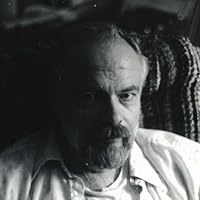
“Tripping across a country pasture with Junie Black... spreading out a blanket on the hot, dry hillside, among the smells of grass and afternoon sun. No, not there. Is that gone, too? Hollow outward form instead of substance; the sun not actually shining, the day not actually warm at all but cold, gray and quietly raining.”
― Time Out of Joint
― Time Out of Joint

“In Search of El Dorado by Stewart Stafford
A meandering mountain path awaits,
Build a bonfire of remembrance,
With crunching staff on gravel,
Certainty slowly becomes a stranger.
The funereal pace of the brand-new,
Is reborn in accelerating steps,
In concert with liberation's adrenaline,
And a cooling breeze through the brim.
Startled young fox on a crag,
A hawk circles overhead,
Sage standing stones keep counsel,
Their shadows pointing the way forward.
Sheep stare and chew in nearby wet fields,
Occasionally bleating confused directions,
A pillar of black smoke stretches into the sky,
A beacon on the horizon.
A ridge around a corner,
The crêpe shop comes into view,
Relief exhaled upon reaching El Dorado's gates,
Golden sustenance and home via the car park.
© Stewart Stafford, 2021. All rights reserved.”
―
A meandering mountain path awaits,
Build a bonfire of remembrance,
With crunching staff on gravel,
Certainty slowly becomes a stranger.
The funereal pace of the brand-new,
Is reborn in accelerating steps,
In concert with liberation's adrenaline,
And a cooling breeze through the brim.
Startled young fox on a crag,
A hawk circles overhead,
Sage standing stones keep counsel,
Their shadows pointing the way forward.
Sheep stare and chew in nearby wet fields,
Occasionally bleating confused directions,
A pillar of black smoke stretches into the sky,
A beacon on the horizon.
A ridge around a corner,
The crêpe shop comes into view,
Relief exhaled upon reaching El Dorado's gates,
Golden sustenance and home via the car park.
© Stewart Stafford, 2021. All rights reserved.”
―
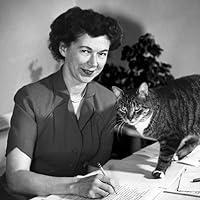
“It was a warm September day, and Ramona, neat and clean, with lunch bag in hand, half skipped, half hopped, scrunching through the dry leaves on the sidewalk.”
―
―
“Perhaps it is thanks to the energy saved on unnecessary walks that the Portuguese ensured their longevity.”
―
―

“Nature is not a place to stop by.
It is a place to spend quality time in.”
― Night of a Thousand Thoughts
It is a place to spend quality time in.”
― Night of a Thousand Thoughts

“Pilgrim’s Progress by Stewart Stafford
Solitary steps in silence grim,
As waters lapped the lakeside’s rim,
In our time, before and aft,
Magpies cackled, crows laughed.
I drew level with a miasmic curtain,
In vapour folds, to views uncertain,
Sound grew thick in compensation,
I took each step with trepidation.
Sweet breath wind, fog dispersed,
Marvelling at the ground traversed,
The garden path to a shelter trite,
As hailstones on my windows bite.
© Stewart Stafford, 2024. All rights reserved.”
―
Solitary steps in silence grim,
As waters lapped the lakeside’s rim,
In our time, before and aft,
Magpies cackled, crows laughed.
I drew level with a miasmic curtain,
In vapour folds, to views uncertain,
Sound grew thick in compensation,
I took each step with trepidation.
Sweet breath wind, fog dispersed,
Marvelling at the ground traversed,
The garden path to a shelter trite,
As hailstones on my windows bite.
© Stewart Stafford, 2024. All rights reserved.”
―

“I took my morning walk, I took my evening walk, I ate something, I thought about something, I wrote something, I napped and dreamt something too, and with all that something, I still have nothing because so much of sum'things has always been and always will be you.
I miss you.”
― House of Leaves
I miss you.”
― House of Leaves
All Quotes
|
My Quotes
|
Add A Quote
Browse By Tag
- Love Quotes 97.5k
- Life Quotes 76k
- Inspirational Quotes 73k
- Humor Quotes 44k
- Philosophy Quotes 29.5k
- Inspirational Quotes Quotes 27k
- God Quotes 26k
- Truth Quotes 23.5k
- Wisdom Quotes 23.5k
- Romance Quotes 23k
- Poetry Quotes 22k
- Death Quotes 20k
- Happiness Quotes 18.5k
- Life Lessons Quotes 18.5k
- Hope Quotes 18k
- Faith Quotes 18k
- Quotes Quotes 16.5k
- Inspiration Quotes 16.5k
- Spirituality Quotes 15k
- Religion Quotes 15k
- Motivational Quotes 15k
- Writing Quotes 15k
- Relationships Quotes 14.5k
- Life Quotes Quotes 14k
- Love Quotes Quotes 14k
- Success Quotes 13.5k
- Time Quotes 12.5k
- Motivation Quotes 12k
- Science Quotes 11.5k
- Motivational Quotes Quotes 11.5k


